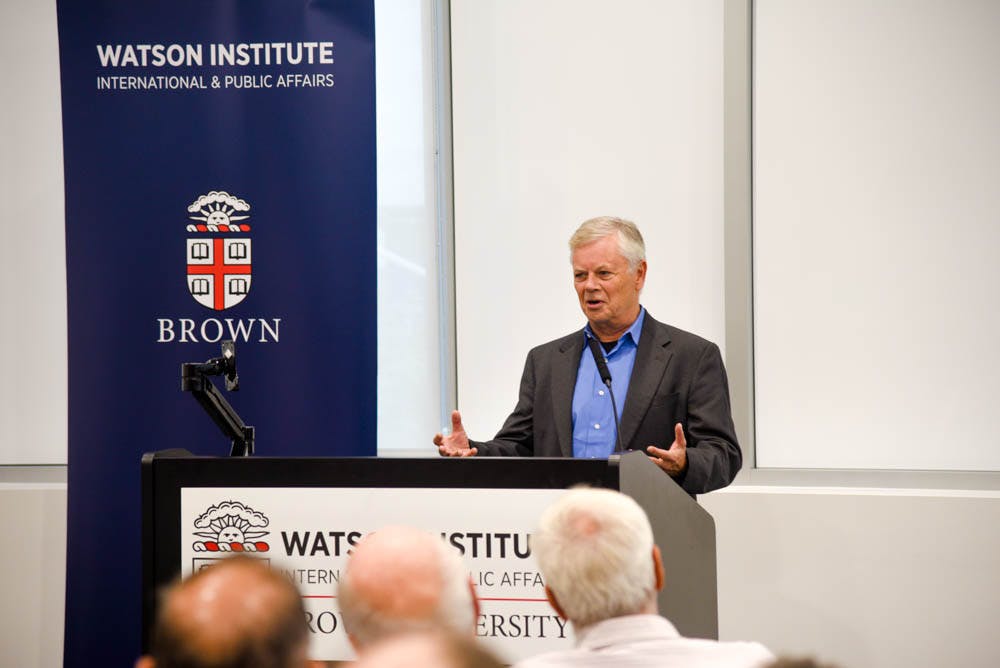In the height of the Cold War, a CIA agent named Sidney Gottlieb worked quietly to weaponize mind control against Soviet Russia.
The story of Gottlieb and his mission to “find the best ways to destroy a human mind” was chronicled by Stephen Kinzer, senior fellow in international and public affairs, in his new book titled “Poisoner in Chief: Sidney Gottlieb and the CIA Search for Mind Control.” Kinzer walked an enraptured audience through the story during a lecture at the Watson Institute for International and Public Affairs Tuesday night.
The critically acclaimed book, published Sept. 10, offered new insight into Gottlieb’s work as head of the CIA’s infamous MK-Ultra operation during the early Cold War. Gottlieb believed that he had to wipe the mind clean in order to control it, and took inspiration from experiments carried out in Nazi concentration camps by using a combination of drugs and physical torture.
The audience listened intently as Kinzer described Gottlieb’s “unendingly inventive” experiments on victims over the course of a decade, which targeted those in the U.S. prison system as well as people he termed “expendables” overseas in Germany and Russia. It took countless deaths and ruined lives before Gottlieb concluded that mind control was not possible. Kinzer described the former CIA agent as “the most prolific torturer of his generation.”
Kinzer also discussed the unintended cultural impact of Gottlieb’s experiments — particularly, the popularization of LSD. Gottlieb believed the drug was “the key that would unlock the universe” and frequently used it in his MK-Ultra experiments. He also paid hospitals to test LSD on volunteers, such as influential writers like Allen Ginsberg and Ken Kesey, who were among the first to ingest it. Kinzer called Gottlieb the “unwitting godfather of the LSD counterculture” because of his role in distributing the drug.
Throughout the talk, Kinzer referenced the duality of Gottlieb’s character. Personally, Gottlieb identified as a humanist, someone who lived in an eco-house and taught speech therapy to children. At the end of his life, Kinzer said, Gottlieb was “clearly troubled,” and “wracked by guilt.”
“He felt that the extremity of his work was made necessary by the urgency of the threat,” Kinzer said, adding that Gottlieb thought mind control would win the Cold War for the U.S. and potentially save millions of lives. “Commitment to a great cause is perhaps the most profound motivation for committing immoral acts. Patriotism is among the most transcendent and seductive of causes, and Gottlieb was very much caught up in that.”
Kinzer told the audience that he was inspired to undertake this book project by the potential to uncover and amplify a hidden story. He conducted original interviews and drew on new research — such as Senate committee investigations in the mid-1970s — to tell of Gottlieb’s life as a cruel and influential player in history.
“I’m looking for stories that are very important and had a big impact on the world but nobody knows about them,” Kinzer said. “When it became clear to me that this person had existed, and when I understood the scope of his MK-Ultra project, I thought this was a great untold story.”
A previous version of this article incorrectly named Stephen Kinzer as a professor of international and public affairs. In fact, he is a senior fellow in international and public affairs. The Herald regrets the error.





